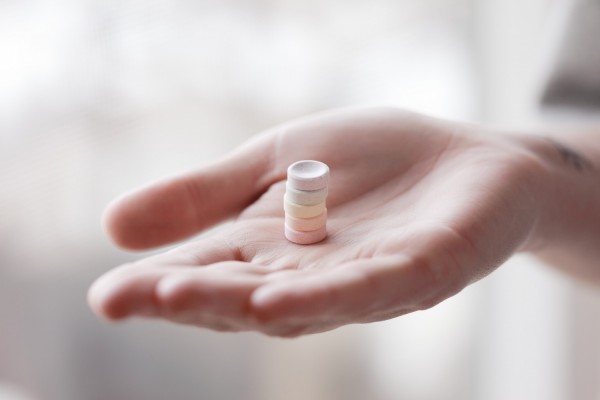Heartburn Medication and Its Link to COVID-19

In new research still being reviewed, the American Journal of Gastroenterology proposes that regularly taking popular heartburn drugs, also known as the PPIs or proton pump inhibitors, may have a link to a higher risk of contracting COVID-19.
The threat of COVID-19 persists. In the United States, count of cases has reached more than 3.6 million, signifying about 25 percent of all cases worldwide.
This global health crisis, indeed, shocked the whole world and made health experts scrambling to learn everything they can the shortest time possible.
Along with the experts' initiative to discover more about the virus, new and more often than not, unwanted information occurs daily.
Part of the latest and many times unwelcomed information arriving each day is a long list of factors for getting COVID-19 and, according to reports, "complications" in which researchers may have discovered a new one.
Specifically, this new finding is that "certain heartburn drugs" appear to be linked to "a higher risk of contagion."
ALSO READ: Study Finds Link Between Consumption of Fermented Vegetables and Low COVID-19 Mortality Rate
Experts' Apprehension
In new research currently being reviewed, the American Journal of Gastroenterology proposes that regular intake of commonly available heartburn medicines, also known as the PPIs or proton pump inhibitors may have a link to a "higher risk of contracting COVID-19."
In a health survey conducted online, over 85,000 individuals stated they tested positive for COVID-19. Meanwhile, over 50,000 respondents claimed they had "acid reflux, heartburn, regurgitation, or minor abdominal pain."
In connection to this, the study authors asked the said participants about their PPI intake.
The researchers, headed by Christopher Almario, MD, found those who were taking medicines for heartburn two times a day were roughly 3.7 times as possible to claim they had tested positive for COVID-19 as those who had not received any of the said medication.
Research also indicated that respondents who are taking medicine once each day was twice at risk, although generally, such risk of the said virus's positive result remained low. Meanwhile, the group of researchers did not find any link to the PPIs to the illness's gastrointestinal symptoms.
Yet to be Confirmed
Although the study showed a link between PPIs and COVID-19, it has yet to be confirmed whether or not the use of the drugs increase the danger of infection.
Even though results in this research may be convincing and certainly specify the connection of PPI with COIVD-19, Danny Branstetter, a medical director of infection prevention at an Atlanta, Georgia Hospital, said, "There is no clear scientific evidence yet, of causation."
Because of this, Branstetter added, "It will be interesting" to find out how the study currently being peer-reviewed, progresses.
DON'T MISS THIS: Harvard Professor and Entrepreneur Devises a $50 Nasal Spray to Stop COVID-19 from Spreading
Dealing with Heartburn
Besides reducing the dose of PPIs taken, or opting for H2 blockers, Dr. Branstetter said you could lessen the occurrence of heartburn too, if you avoid eating fatty and spicy foods citrus fruits, as well.
Also, in the study, the medical professional added, "obesity and smoking" were found to be significant factors that increase the risk of getting infected with COVID-19. It would help, Branstetter said, if people would start losing weight and quitting smoking or even vaping.
According to a gastroenterologist and professor of medicine in digestive disorders, Gulchin Ergun, MD, "This would be the best time" to reevaluate everything an individual can do for lifestyle and health improvement that will not require him to take medications.
Ergun added, COVID-19 has caused everyone stress, and many people have gained a lot of weight while on home quarantine, and they have been stress-eating, and "this would be a great opportunity to prevent that."
IN CASE YOU MISS THIS: Study Finds New COVID-19 Symptoms That Young Adults May Experience
Jul 17, 2020 07:30 AM EDT





